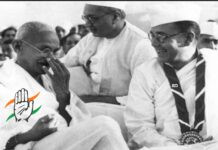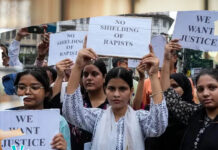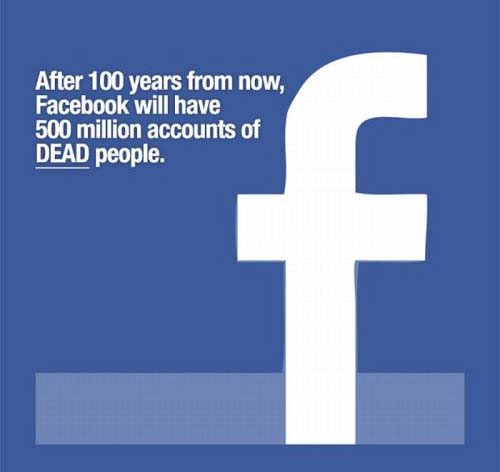By Nidhi Nagpal
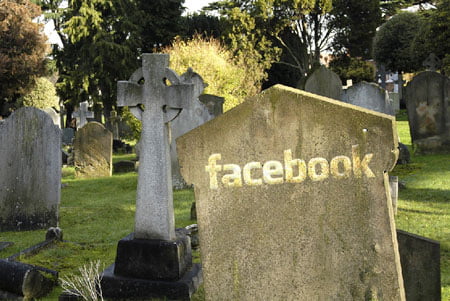
This post originally appeared on Read Write.
Social media has become an indispensable part of the mango people’s life. We are inclined to share each and every moment of our life on social media, be it the minute details of where and what are we eating right now to the biggest moments- birth, graduations, engagements and the list is endless. But did anyone ponder on the fact that what will happen to the profiles of all the ‘tech- savvy’ internet addicts after they leave for their heavenly abode? Lives are digitally saved to the internet, and the years spent on posting status updates are now a fixed timeline reminding loved ones that we once did exist.
MANAGING LIFE AFTER DEATH
It is an impossible question to answer and even harder to ask. What do you do with an account when there is no one around to manage it? Facebook addresses the issue by memorializing accounts. Facebook has no way of knowing which profiles belong to deceased individuals, so friends and family can request to memorialize an account so no one can ever log into it, and loved ones can share memories through wall posts and messages.
There aren’t really any norms around death and social media yet. People are kind of making it up as they go along. This Facebook generation will have more experience with death than any generation before it, because anyone you ever knew, people who have naturally faded from your life, will remain there and you will stumble into them and realize they are dead.
That is what happened with Dowdell. Moore, a communication student and actress, virtually met Dowdell via Facebook and romantic sparks flew between them. One random day, Dowdell’s Facebook page, peppered with photos of him with his dogs, videos of him dancing, had been quieter than usual. Moore dint come across the post about what happened until a few days later. A friend posted a message on his wall after speaking to Dowdell’s mother, with whom Dowdell had a strained relationship. He would be cremated with no ceremony. So Moore and a handful of his friends began exchanging messages, planning for a celebration to keep his memory alive.
They posted photos of him ahead of the gathering: a dapper Dowdell at a friend’s wedding, him with a good friend’s dog, posing with a friend and capturing his fun-loving spirit. The page was filled with similar updates since then. Most times, the friends wrote on his wall with deep remorse and affection as if it would directly transmit the message to him. “It’s more for us than for him,” says Moore, whose name is scattered throughout the page with her own postings and “likes” of others’ words. She recalls that he loved being online. It’s how he met new friends and kept in touch with old ones. Dowdell always believed “everything on Facebook stays on Facebook. It’s not going to go away or disappear.” His instinct indeed came true.
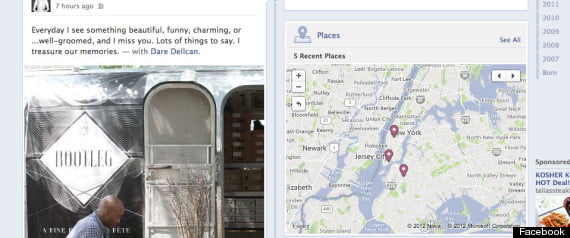
Roger Ebert, renowned film critic and journalist, coordinated with his editor before he died, allowing him to have access to his social media account and continue to post at his behest. So even though Ebert would no longer manned his account, his thoughts and beliefs were still shared with his friends and followers in a non- cryptic way.
For all our internet buffs who want to stay connected with the world even after their death, there are services that can help.
- DEADSOCIAL lets users set secret, timed messages that are distributed by a designated executor on Facebook and Twitter after the person has died.
- The India-based start-up Creative Nature’s DEPARTED LIFE calls itself “the world’s first social networking site for departed souls”. It is a noble goal and there is an increasing demand for it, as the social networking profiles say a great deal about who we are and that is all information our family and friends may be interested in after we are gone.
Facebook enables people to visibly see how others are connected and are grieving. It allows people to commiserate, thus creating a support system for those who have suffered loss. Although initially it may feel like witnessing an intensely private moment that one should not be seeing. But on the other hand sharing helps people process their feelings and make sense of what is happening around them. It is not an unhealthy practice-just a new way of doing what we have always done to process emotions.
YOUR DATA NEVER DIES, IT MIGHT JUST DISAPPEAR.








